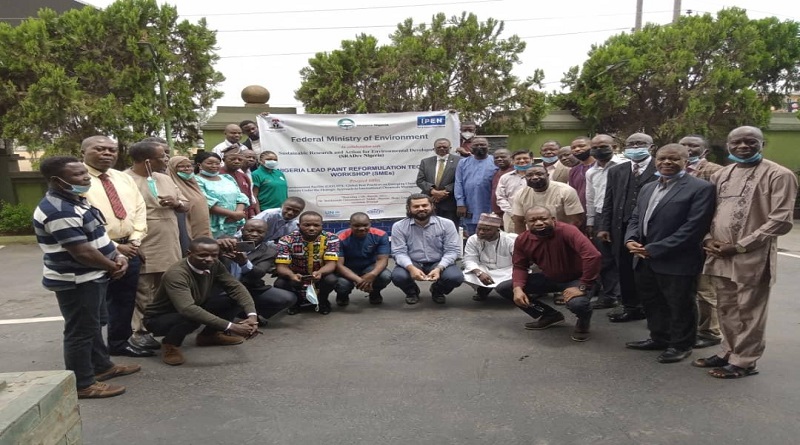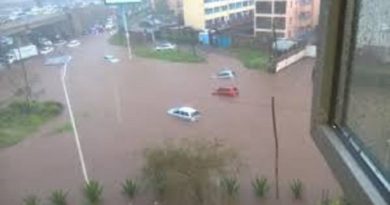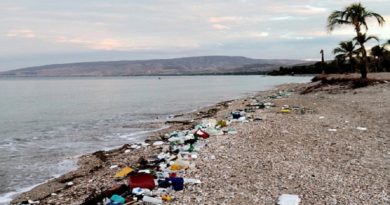Nigeria steps up effort towards lead free paint
Photo caption: Cross section of participants at the Nigeria Lead Paint Reformulation technical Workshop hosted by SRADev Nigeria in Lagos on 25 March 2021.
In line with the global move towards lead free paint, the Federal Government of Nigeria through the Ministry of Environment in collaboration with Sustainable Research and Action for Environmental Development (SRADev Nigeria) have stepped up effort towards ensuring that paints manufactured in the country are lead free.
Towards this, a lead paint reformulation technical workshop for selected Small and Medium sized Enterprises (SMEs) paint manufacturers was held penultimate week in Lagos to make a connection between international and national expert teams with the technical reformulation process; identify, present and discuss technical options that will be pilot tested in selected SMEs with the support of SRADev/IPEN.
In his opening remarks at the workshop, Director, Department of Pollution Control and Environmental Health, Federal Ministry of Environment, Mr. Charles Ikeah, who represented the Minister said lead is a cumulative toxic element particularly harmful to young children and pregnant women and its continued use in paint around the world remains significant source of human exposure.
“This has led to the designation of Lead in Paint as issue of Global Concern under the Strategic Approach to International Chemicals Management (SAICM). To address this issue of lead in Paint and avoid the reoccurrence of Zamfara and Niger state lead poisoning incidents, the Federal Ministry of Environment through its agency National Environmental Standard and Regulations Enforcement Agency (NESREA) as enacted a regulation limiting the lead content of paint in Nigeria to 90ppm.
“This is a legal backing to the 90ppm standard set by Standards Organisation of Nigeria (SON) in 2017 for Lead paint in Nigeria. I would like to state in this connection that the enforcement of the regulation will soon commence, reason why we are in collaboration with SRADev on the Lead Paint Reformulation in Nigeria.”
Executive Director, SRADev Nigeria, Dr. Leslie Adogame, said demonstration pilots with paint manufacturers in SMEs is part of the SAICM Global Environment Facility project work plan with industry.
Parts of the expected benefit outcome of the project he listed include: Help paint production in Nigeria aligns with sustainability; a safe environment for children and everyone; prevention of the exposure of children to lead-containing paints and to minimize occupational exposure to lead paint; commitment of the five SMEs to phase-out lead use in paint and technical capacity building on reformulation of lead paint of 5 SMEs through the pilot demonstration.
The SRADev boss added that the organization is facilitating access to high quality, lead-free raw materials through connecting alternatives suppliers with SMEs, working with Paint Manufacturers Association (PMA) to identify Lead-free paint raw materials suppliers and holding consultation meeting with the alternative suppliers to access their products.
Asked on the possibility of taking the reformulation process to SMEs paint manufacturers in other parts of the country, he said the project only focuses on five selected SMEs in Lagos for now but that there are possibility to scale up to other parts of the country in future.
Executive Secretary, PMA, Mr. Jude Maduka, pointed out that paint Reformulation using new /lead free raw materials is now more than necessary because of the need to:
- Protect paint users/the populace from the dangers of exposure to lead.
- Protect and sustain the environment and make it more eco-friendly.
- Respect the law of the land on standards and phase out of lead from paint production processes.
- Join the rest of the world in engaging in global best practices for emerging chemical policy issues of concern. Already a number of paint manufacturers in Nigeria have moved away from lead- based additives to lead free alternatives of zircomium, strotium, cobolt, fillers, pigment pastes and powder, etc.
- Produce quality paints that are competitive and can help paint manufacturers in to take advantages of the soon to take off Africa single market- Africa Continental Free Trade Area(AFCFTA)- (the largest single market in the world). The Federal Executive Council in its meeting recently rectified the country’s membership of the single market.
- However, for Nigeria and indeed the paint industry operators to benefit from the single market, government should be ready on its part. The “ease of doing business” it has been promoting since 2019 must become a reality- adequate electricity, good roads, rail transportation must be ready while government officials at all levels must be prepared to do the right things- play by the rules.
Maduka went further “Reformulation of paints and Substitution of materials will no doubt pose some challenges to the SMEs. It will take sometimes before full reformulation and substitution by the operators will happen. Some will learn the process fast while it will take others sometime to learn.
“Paint users may not be willing to pay the prices associated with the new reformulated products in the short run and this will definitely affect the fortunes of the operators, he added.
Nicoline Valanchy of United Nations Environment Programme (UNEP) in her virtual presentation on the SAICM GEF Lead Paint Component listed the barriers to phasing out lead in paint to include technical barriers- for SMEs wishing to eliminate lead from paint: limited technical capacities or resources to formulate lead free paint and lack of regulations- lack of capacity in developing countries to introduce and enforce lead limits.
Vojislavka Satric, Technical Expert on the project, posited that it is feasible to substitute lead compounds in paints in SMEs. According to him, there are many pigments and driers available on the market that may effectively substitute lead compounds.
Representative of NESREA, Spanny Embiemu, said the National Environmental (Hazardous chemicals and pesticides) Regulations, 2014 did not contain provisions on lead-in-paint, however, it is currently being reviewed and Lead-in-paint issues are incorporated into the regulations to address global concerns on it.
She explained that the regulation addresses the following as it relates to Lead-in-paint amongst others:
- Enforce the concentration of Lead-in-paint and coatings in Nigeria to be in line with globally accepted and/or permissible limits.
- Regulate the manufacture, sale and import of paints and coatings that contain lead above established permissible limits.
- Eliminate the use of paints and coatings containing added lead compounds.
- Eliminate the production, distribution, import, and export of paint products exceeding specified lead levels and limits.
- Provide standardized warning labels for all paints and other coating products to better inform consumers and workers of the hazards of lead exposure from paint products.
Senior Programme Officer, SRADev Nigeria, Mr. Victor Fabunmi, in his presentation on Occupational Health and Safety in paint manufacturing, SMEs urged the government through Ministries, Departments and Agencies to promote occupation health and safety tailored to help SMEs.
He stressed that “Safety and health at work can be key to sustainable development and investment in OSH can help contribute to the achievement of the 2030 agenda for sustainable development, and especially to the achievement of sustainable development goal (SDG) 3, to ensure healthy lives and promote well-being for all at all ages and SDG 8, to promote inclusive and sustainable economic growth, employment and decent work for all.”
The workshop attended physically by more than 25 participants from SMEs paint manufacturers was also attended by virtual participants.




